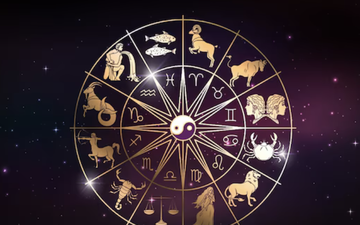
Why do our relationships become something less, instead of something more?
Many years ago, I was asked to lead a seminar on a topic of my choice and decided to give a talk and lead a discussion entitled, "Marriage is a verb, not a noun." As you can guess, the gist of the presentation was that marriage is an action word, an action experience - or it should be if it is not already.
The idea resonated with many people and the seminar delighted the audience and the response was positive. I remember some people commenting on divorces in their families and among friends. They were trying to say they would not be one of those divorced.
One of the most common complaints heard from romantic partners, married or not, is that they no longer feel the excitement, intrigue, or joy they claim, who have faded or evaporated. This may be especially true for those who are on their bridal adventure, but there are also those who sing a different tune. Romantic partners in this category talk about deepening the relationship, how it has “aged like a brilliant summer” or has become even more interesting and multidimensional than it was when they got married in their twenties or thirties.
There are many ways to understand the differences in their experiences. Things like family history (of course including the nature and quality of the parents' marriage), the ability to relate to others, the type of character, the ability to handle conflict, and the overall quality of the marriage are all included in understanding why for some marriages the experience has been a somewhat dull or downhill journey, while for others it is joy and the journey of a lifetime.
Ka disa shpjegime të mundshme pse marrëdhënia mund të jetë bërë diçka më pak, në vend të diçka më shumë, me kalimin e kohës. Dikush mund të thotë se një partner romantik mendon se nuk po i plotëson më nevojat në marrëdhënie dhe kështu mund të ketë ndaluar së investuari në të. Kjo përgjigje me siguri mund të sinjalizojë telashe pasi largimi është shpesh jo i drejtpërdrejtë, delikat dhe i patreguar, kështu që stimulon sjellje të ngjashme tërheqjeje nga ana e partnerit tjetër të marrëdhënies.
Një shpjegim tjetër mund të jetë ajo që u ndodh çifteve "kur risia prishet". Kjo, për disa, mund të zgjasë me vite; për të tjerët, mund të ndodhë në muajin e mjaltit ose edhe më parë. Mënyra për të shmangur këtë zhvillim, sigurisht, është të sigurohemi se janë bërë përpjekje nga të dy palët për ta mbajtur marrëdhënien të freskët dhe emocionuese, në vend se ta shikosh atë të vyshket dhe të lejosh të ndihesh një këpucë e vjetër dhe e rehatshme, por e përdorur shumë dhe e palustruar. Kjo është në përputhje me nocionin se një martesë ose ndonjë marrëdhënie e rëndësishme është diçka që ju bëni, d.m.th. folje, në vend se diçka që keni, d.m.th. emër.
- Shkruar nga Richard B. Joelson, psikoterapist në New York, i cili ka qenë studiues dhe motivues për shëndetin mendor për shumë vite.

- When the phrase 'do not destroy the family' does NOT apply: How to help someone who is divorcing
- The study explains: Do partners really resemble each other over time?
- Find out if you are ready for marriage or not
- 10 Bad Habits That Seriously Threaten Marriage
- 10 fantastic answers to the horrible question 'when will you get married'
- Do well to get rid of these myths about love





